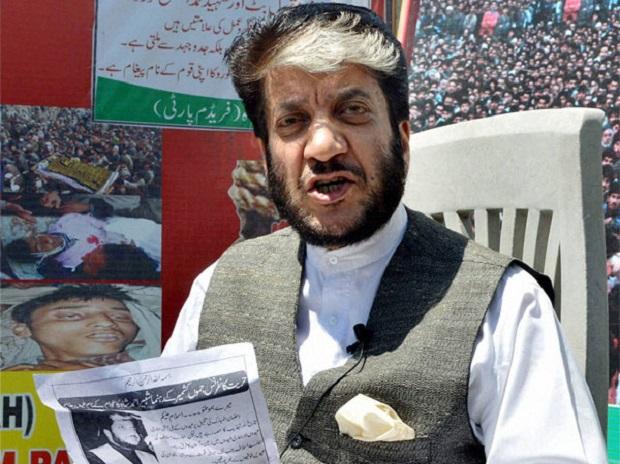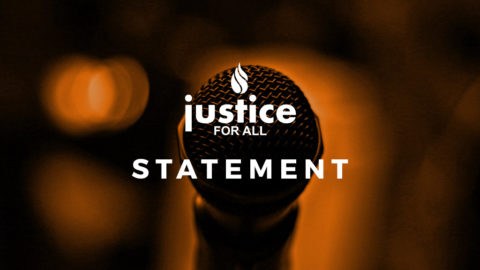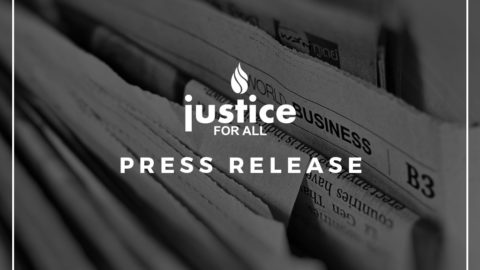
#FreeShabirShah 35th Year In Prison: A Victim of Indian Settler Colonial Policies In Kashmir
Introduction:
- Shabir Shah, 67, one of the most popular and respected political leaders in Indian Administered Kashmir, is currently serving out the 35th year of his detention. Born in 1954, Shah was arrested and detained for the first time in 1968 for organizing a protest against the Indian Government to demand self-determination for Kashmiris. In 1993, Amnesty International declared him a Prisoner of Conscience after a thorough investigation.
- In 1995, Shah was offered the post of chief minister of the autonomous State of Kashmir by then Indian Prime Minister. A.S. Dulat, former chief of the Indian Intelligence agency RAW and Intelligence Bureau IB, writes in his 2015-book Kashmir: The Vajpayee Years that he met Shah in Jail several times and offered him the chief ministership of Kashmir in the mid-1990s, on the orders of then prime minister Narasimha Rao. Shah rejected the offer. Dulat also writes that he gave the title of ‘Nelson Mandela of Kashmir’ to Shabir Shah.
- In the last 53 years, Shah was arrested repeatedly on charges under the Indian Government’s emergency laws like TADA and PSA. These draconian acts neither require any charge sheet, warrant, or prior legal formality and proceedings. Despite 34 years of pretrial detentions, the Indian Government could never prove any charge against him. However, it is the first time that the police have charged him for a criminal offense of money laundering.
Political Ideology:
During his half-century-long political struggle, Shah never succumbed to the lures of militancy or terrorism. Shah’s father died in police custody in 1989, but he still advocates a peaceful solution to the Kashmir conflict through dialogue according to the aspirations of the Kashmiri people. Shah calmly reiterated on various occasions that he is not against India or any other nation. He rejects any solution which does not take Kashmiris onboard.
Current Case:
- Shabir Shah was last arrested on 25 July 2017 in a 2005 money laundering case. According to the charge sheet, the special cell of Delhi police had arrested Ahmed Wani, an alleged hawala dealer, and claimed that they recovered Rs 63 lakh from Wani, of which Rs 52 (55 lac) lakh was to be delivered to Shah. Initially, Wani pleaded not guilty, but according to the prosecution, he later claimed that he had passed 2.3 Crore (230 million) in Indian currency to Shah. This charge is dependent on flimsy evidence of primary accused Aslam Wani’s statement. Ironically, the court granted the bail request of Aslam Wani but dismissed the repeated bail request of Shah. (Link2)
- This highly respected political leader who was offered the highest political office in Kashmir has now been accused of money laundering on dubious charges. The prosecution could not provide concrete evidence against him in the last four years. According to human rights law, prolonged detention without charge is considered arbitrary detention.
- Apparently, Shah was initially charged only with money laundering, but the prosecutor (Enforcement Directorate ED) later added that terror funding charges and colluding with Pakistan. (Link1) According to the family, no court proceedings have ever taken place in the last four years.
Indian Perspective:
- Shah is portrayed in the Indian media as a Pakistani agent who incites terror in Kashmir with the help of Pakistani funding. Once in 1989, he was arrested on the charges of fleeing to Pakistan. However, former Indian Intelligence bureau director A.S Dulat himself admits that Shah never went to Pakistan.
Character Assassination and Media Trial:
In the absence of concrete evidence, Indian media has constantly hysterically repeated the rhetoric that he is arrested in a terror funding case. They portrayed Shah as a Pakistani agent and terror supporter without mentioning that prosecution could never prove him guilty of any charge in the court. The charges resulted in 30 years of arbitrary pretrial detention. This character assassination of a highly respected political leader and an individual who is declared a Prisoner of Conscience by Amnesty International is evident of the political nature of the cases against him. Moreover, it is the cause of further mental torture for the family. (Link1)
Troubling his Wife and Daughters:
- The prosecution also charged his wife and summoned his daughter. In April 2019, they summoned his daughter Sama Shah, who was just five years old when the alleged crime happened in 2005. Notably, Sama Shah topped the CBSE (12th grade ) Exam in Kashmir in 2018 and studied in London at the time of summoning. This call tells enough about the political nature of the case. (Link3)
- In 2020, the prosecution filed a charge sheet against Shah’s wife, Bilquis Shah, in connection with the 2005 money laundering case. The agency alleged that Bilquies received part of funds routed to Shabir Shah by an alleged Jaish-e-Mohammed operative. Notably, she is a doctor and works as an administrator in a hospital.
Health Concerns During Pandemic:
- Shah suffers from serious medical conditions, including severe weakness, heart disease, diabetes, hypertension, and arthritis. The family believes he is not getting proper medical treatment. Incarceration in unsanitary and crowded conditions may be life-threatening for 67 years old Shah during the Covid 19 pandemic. He is also vulnerable to torture which is rampant in Indian jails. According to his daughter Seher Shah, jail authorities are not providing him with his medical records. According to the human rights law regarding the fair trial, the detainees have a right to their medical records and request a second medical opinion [Amnesty, 2014, P.55].
- In 2020, six prominent human rights organizations, including Amnesty, urgently appealed to the Indian Government to release Kashmiri political prisoners detained arbitrarily, considering the threats to their health during the pandemic.
- Besides Seher Shah, daughter of Shabir Shah, Ruwa Shah, granddaughter of Syed Geelani, and son of Asia Andrabi has also expressed concern for their parents’ well-being and health conditions.
Imprisonment Away from Home
- During the pretrial, authorities kept him in Tihar jail, about 700 km away from his home in Srinagar, making it very inconvenient for his wife and daughters to meet him. The family requests to transfer him to a jail close to his home in Kashmir on a humanitarian basis.
- Even when they meet, they cannot sit together or touch each other; they can only see each other through a small blurred glass window. It is pretty inhumane for an individual not yet convicted of any crime. The jail staff’s attitude toward the visiting family is also wildly inappropriate.
- Notably, a UN OHCHR report published in 2019 on human rights violations in Kashmir says that transferring detainees outside the state makes it harder for family members to visit and for legal counsel to meet with them. The report also noted that prisons outside the state were considered hostile for Kashmiri Muslim detainees, especially separatist leaders.
Bail Denial
- In the last four years, the prosecution could not provide any other evidence for money laundering, let alone terror funding.
- The court denied his bail request in 2017, 2018, and again in 2021. Shah’s lawyer filed a bail plea in 2021 on health grounds during the pandemic, but the court refused Shah’s bail request on 1 July 2021. The prosecution further accused him of conspiring with Pakistan to create unrest in Kashmir.
- According to international fair trial standards, detention pending trial is a preventive measure aimed at averting further harm or obstruction of justice, rather than a punishment. [Amnesty, 2014,p.62]
Conclusion
- Shabir Shah is 67 now and is suffering from diabetes, arthritis, heart disease, and possibly kidney ailment. Since 1968, he has been imprisoned for 34 years because of his political struggle for his people. Current charges against him are based on dubious and flimsy evidence. The prosecution could not provide evidence against him in the last 4 years. Charging his wife and summoning the daughter, who was only five when the alleged crime was committed, further shows that Shah is incarcerated for political reasons. He is being punished for his struggle for the right to self-determination for Kashmiris.
- Despite his prolonged pretrial detention, Shah remains one of the most popular Kashmiri leaders. In September 2021, he was nominated as the Vice president of the All Parties Hurriyat Conference, an alliance of all Kashmiri organizations working for self-determination. Notably, the whole Kashmiri leadership is in Jail, mostly outside of Kashmir. The new Hurriyat president Mussarat Alam Bhatt is also detained in Tihar Jail.
- According to human rights law, prolonged pretrial detention without trial is considered arbitrary.[Amnesty, 2014, P. 62] According to article 9(3) of the International Covenant of Civil and Political Rights ICCPR, “anyone detained on a criminal charge has the right to trial within a reasonable time or to release pending trial.” [Amnesty, 2014, P. 70]
- The above facts show that Shah’s detention is illegal and arbitrary. Arbitrary and unlawful detention violates Article 9 of the Universal Declaration of Human rights, Article 9(1) of the International Covenant of Civil and Political Rights, and several treaties signed by India. Prolonged delays in bringing detained individuals to trial, resulting in longer pretrial detention, exacerbate overcrowding in detention facilities, may lead to conditions that violate international standards. [Amnesty, 2014, P. 70]
- The above facts also endorse that the Indian State is not fulfilling its fair trial obligations in the Shabir Shah case. The right to a fair trial is a fundamental right of all human beings according to the Universal Declaration of Human Rights and several other legal instruments signed by the Indian State.
- India should respect international human rights law and its constitution and stop human rights abuses in Kashmir. Release Shabir Shah and all political prisoners of Kashmir unconditionally. If not, release them on bail or put them under house arrest on humanitarian grounds during the Covid 19 pandemic.
Disclaimer: This document is produced without going through legal documentation or consulting Shah’s lawyer. The JFA / author is not responsible for any inconsistency in the legal case information. We are waiting for Seher Shah’s response.




